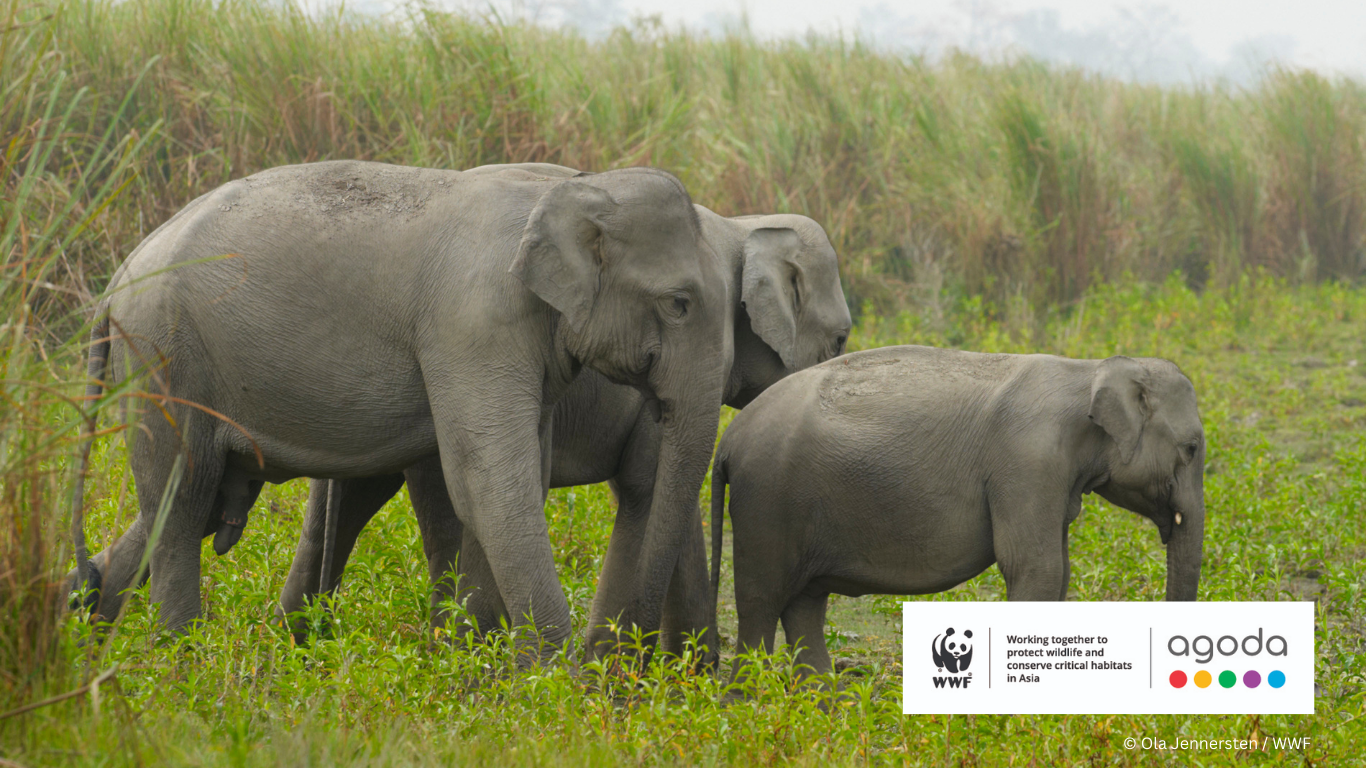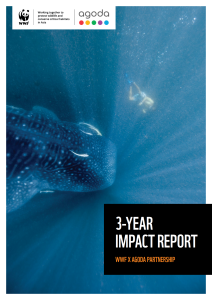Protecting Wildlife and Conserving Critical Habitats Across Asia
Asia’s identity is shaped by its rich natural heritage, encompassing vast and varied landscapes as well as unique species they support. These ecosystems serve as critical natural infrastructure for local economies, providing resources such as food, water and climate regulation that sustain millions.
This natural heritage also attracts travellers seeking meaningful connections with the natural world. The growth of nature-positive tourism reflects a rising appreciation for these Asian landscapes and reinforces the need to protect them so future generations can experience them too.
However, escalating threats, such as habitat loss from land conversion and deforestation, along with the overexploitation of species and natural resources, continue to put Asia’s wildlife and ecosystems at risk. Recognizing the urgent need to protect these critical habitats, WWF and Agoda have entered the fifth year of partnership through the ongoing Eco Deals programme.
This milestone is strengthened by the signing of a five-year Memorandum of Understanding (MoU), reaffirming both organisations’ shared commitment to wildlife conservation and habitat protection, while enabling strategic work to raise traveller awareness and drive industry engagement for more sustainable tourism throughout Asia. Building on the US$2.89 million raised to date, Agoda has pledged an additional US$1.5 million through the fifth edition of Eco Deals to support WWF’s conservation efforts across 10 countries in Asia. For every booking made at a participating Eco Deals property, Agoda donates US$1 directly to WWF’s efforts to protect wildlife and safeguard critical terrestrial and marine habitats.
“Eco Deals reflects five years of collaboration with WWF to support conservation efforts to protect Asia’s most remarkable destinations, alongside a growing network of accommodation partners,” said Andrew Smith, Senior Vice President, Supply, Agoda. “The signing of a new five-year MoU with WWF is a testament to our shared vision and action for long-term conservation and industry collaboration. In the past year alone, the program has seen participating properties grow by more than 45%, with strong momentum in markets like Indonesia, the Philippines and Malaysia. But what’s most rewarding is seeing how Eco Deals has become a platform for hotels to differentiate themselves, connect with sustainability‑minded travelers and contribute to meaningful conservation work across Asia.”
Building on the foundation of last year, the partnership aims to continue strengthening responsible tourism initiatives. The Sustainable Tourism Impact Fund a collaboration with the UnTours Foundation, continues to offer accessible investment capital to Micro, Small, and Medium-sized Enterprises (MSMEs) in the regions’ tourism sector, helping them adopt sustainable business practices that contribute to responsible, nature-positive travel. “Nature is a source of wonder and a vital lifeline for communities and wildlife,” said Hsieh Fu Hua, Chairman, WWF-Singapore. “Eco Deals shows how the tourism industry can actively contribute to nature-positive outcomes while creating value for travelers and destinations alike. By working across markets and a broad network of stakeholders, this partnership helps link local conservation priorities with regional coordination to protect nature today and for future generations.”





















